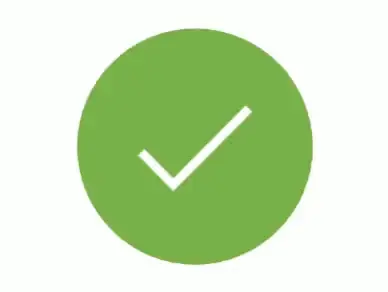This SAS Certification course will give you the practical knowledge you can apply in your next data analysis job.
SAS Certification for Data Science is intended for professionals who use SAS software for data analysis and reporting. This certification is suitable for Data Analysts, Data Scientists, Business Analysts, and anyone else who wants to demonstrate their knowledge and skills in using SAS for data analysis.
It is also beneficial for people who work in industries such as finance, healthcare, retail, and government that use SAS software. Additionally, those who are interested in a career in data science or analytics and want to gain a competitive edge in the job market by having SAS certification may also consider taking this course.
prerequisites for data science with SAS:
-
Basic statistics: Understanding of descriptive statistics, probability distributions, and statistical inference is necessary to be able to use SAS software for data analysis.
-
Programming: Familiarity with programming concepts, such as loops and conditional statements, can help in understanding the SAS programming language.
-
Data management: Knowledge of how to manipulate and clean data is essential in data science, and can be helpful in using SAS software for data management and data preparation.
-
Experience with other data analysis tools: Familiarity with other data analysis tools such as R, Python, or SQL can be helpful in understanding the basic concepts of data science and in learning SAS.
-
Understanding of data visualization: Knowing about data visualization and its importance in data analysis is a plus for a data science professional.
- Introduction to SAS:
- Understanding the SAS architecture and the different components of the SAS system.
- Navigating the SAS environment and managing SAS libraries, files, and data sets.
- Data Management:
- Reading and writing data in various formats such as CSV, Excel, and SQL databases.
- Creating and modifying SAS data sets using data step programming and SAS procedures.
- Data manipulation using SAS functions and statements such as subsetting, merging, and sorting data.
- Data Exploration and Visualization:
- Exploring and summarizing data using SAS procedures such as PROC MEANS and PROC FREQ.
- Creating graphs and charts using SAS procedures such as PROC SGPLOT and PROC SGPANEL.
- Using ODS (Output Delivery System) for data visualization and creating reports.
- Statistical Analysis:
- Overview of statistical concepts such as measures of central tendency, variability, and probability distributions.
- Using SAS procedures for descriptive statistics, hypothesis testing, and regression analysis.
- Concepts of ANOVA, Time Series Analysis, experimental design, and others.
- Data Preparation for Modeling:
- Techniques for data preparation and cleaning such as missing value handling, outlier detection, and data transformation.
- Using SAS procedures for variable selection and feature engineering.
- Predictive Modeling:
- Introduction to machine learning concepts such as supervised and unsupervised learning, decision trees, and neural networks.
- Using SAS procedures for building and evaluating predictive models such as PROC GLM, PROC LOGISTIC, and PROC TREE.
- Advanced Analytics:
- Techniques for text mining, time series analysis, and statistical process control.
- Using SAS procedures such as PROC TSMODEL, PROC ARIMA, and PROC SPC.
- SAS reporting:
- Creating and publishing reports, dashboards, and other visualizations using SAS tools such as SAS Studio, SAS Enterprise Guide, and SAS Web Report Studio.
- Understanding the options and procedures that are available in SAS for report generation.
- SAS Certification Exam preparation:
- Tips and strategies for passing the SAS certification exam.
- Review of exam format and content, and practice questions and mock exams.
Data Science with SAS FAQ’s:
There are no formal prerequisites for data science with SAS, but having some basic knowledge and skills in statistics, programming, data management, and other data analysis tools can be helpful.
The duration of the course may vary depending on the provider and format of the course, it may be self-paced or instructor-led, but it generally takes around 40-80 hours to complete. The certification exam can be taken after completing the course, and the time frame for passing the exam may vary depending on the level of certification.
The format of the certification exam varies depending on the level of certification, but it generally includes multiple-choice questions and may also include hands-on exercises. The passing rate for the certification exam also varies depending on the level of certification and the exam, but it is usually around 70-80%.
The cost of the course and certification can vary depending on the provider, but it is generally around $1000-$2000.
Career opportunities after getting certified in SAS include roles in data analysis, data science, business intelligence, and analytics. SAS is widely used in industries such as finance, healthcare, retail, and government, so certification in SAS can open up job opportunities in those fields.
SAS certification is widely recognized and respected in the industry, and is specific to the SAS software. Other data science certifications such as those for R or Python may cover similar topics but with different software, so it depends on what software is used in the industry where you want to work.
The best resources to prepare for the certification exam depend on the level of certification and the provider of the course. It may include the course materials, practice exams, sample questions, and study guides provided by the provider. Additionally, there are many SAS communities, forums, and blogs that provide additional resources, tips and support to prepare for the certification exam.
